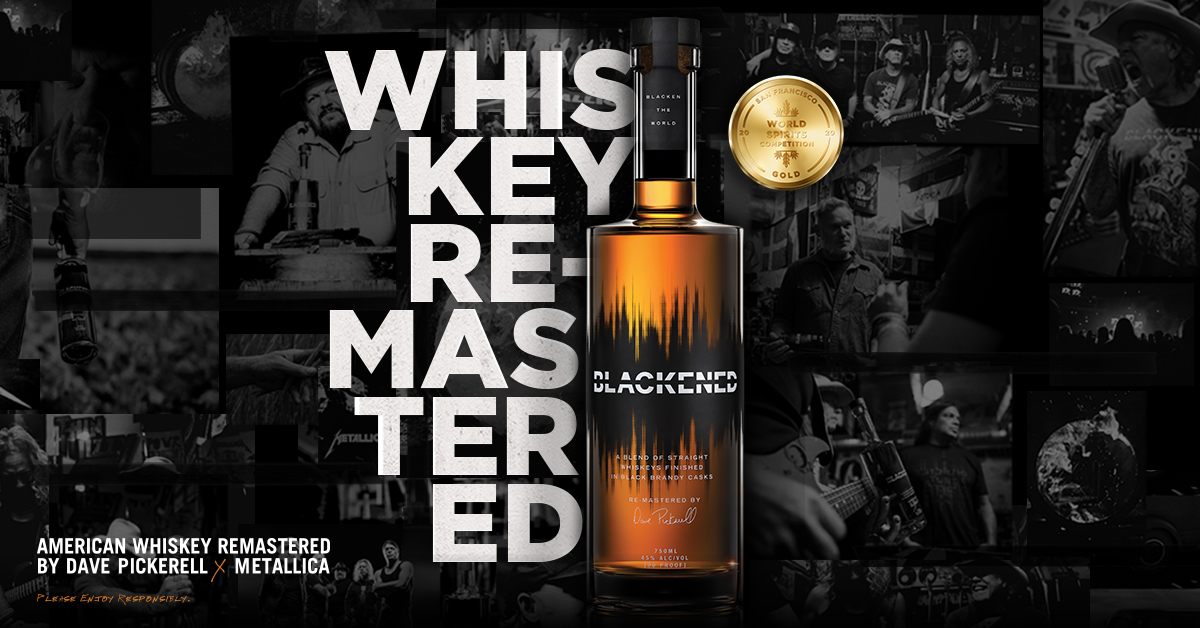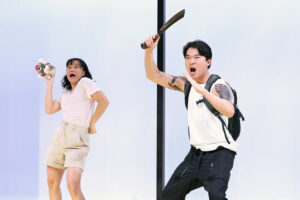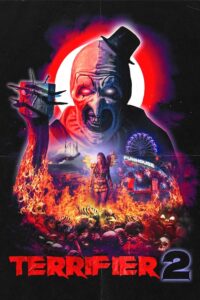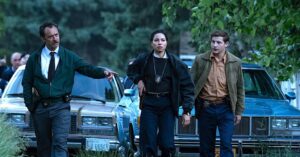Lethal Weapon celebrates its 30th anniversary this year, a classic of its day how does it hold up after all this time?
While not the first of the buddy cop genre it remains one of the best examples of it. The story follows Sgt Roger Murtaugh (Danny Glover) of the LAPD enjoying his 50th birthday when he is assigned to the investigation of a young woman who jumped out of a high rise to her death and turns out to be the daughter of an old friend Michael Hunsaker. At the same time Murtaugh is assigned a new partner in Sgt Martin Riggs (Mel Gibson) coming over from narcotics. Riggs is a highly trained marksman and martial arts fighter who lately has been noted for showing little fear in stand offs. Following the death of his wife it is believed he is suicidal making him extra dangerous in show downs but also unpredictable for the married suburban dad of three – Murtaugh. The two clash but slowly start to form a bond as they become changed by the investigation and their budding friendship.
Lethal Weapon marks time in a variety of ways from it being totally ok to barge in on Dad while he’s having a bath (no joke, Roger Murtaugh is wished happy birthday from his whole family while he’s taking a bath) to male cops remarking they must be “modern males” if they’re crying. Of course the cast looks incredibly young here decked out in their 80s duds, millenials in particular might be shocked to see not only why Mel Gibson was a blue eyed heartthrob but that Gary Busey as main henchman Joshua was even looking pretty good having lost 60 pounds not long before filming. Wait until you see him in Big Wednesday kids. The score composed by rock stalwarts Michael Kamen and Eric Clapton featured guitar riffs and cheesy saxophones but even with such 80s trappings was very unique at the time before spawning a whole sound for the genre that dominated the next decade.
Something that is also striking in the now current trend of superheroes duking it out in blockbusters utilising CGI and quick cut editing is how good director Richard Donner was at framing action. Over 30 stunt crew members were employed on Lethal Weapon, a modestly budgeted 15 million dollars actioner, including Dar Robinson who died doing a stunt on a subsequent production and to whom Donner dedicated the film. For Die Hard 2: Die Harder 3 years later, over 50 stunt crew were employed, back then the measure of a blockbuster’s spectacle was reflected in its stunt crew numbers whereas now it is in the number of special effects personnel employed. There’s two falls from buildings (Gibson doing the last few feet for one scene), car crashes if not strictly speaking car chases (Donner obviously scratching that itch by opening the first sequel with a car chase), helicopters flying low level creating some thrilling shots and finally a completely unnecessary but supremely satisfying fight scene in the rain for the finale between Busey and Gibson that was shot over 4 nights and employed 3 distinct fighting styles. The film has a kinetic energy that is boisterous and fun, prior to this, action in these types of films would involve ducking for cover and firing from one position. Then Martin Riggs rolled across the ground while firing his pistol and the whole game changed. In light of two recent wars and the reality of fire and movement tactics that have prevailed in films since there is something quaint about Gibson blinking as he fires and never having shells bounce into his face as he twists his 9mm Beretta around but the action scenes remain exciting and easy to follow.
One of the best things about the film though is how grown up it is and not just regarding the violence and the swear words. Writer Shane Black intended Riggs to be like the character of Shane in the classic western, a good man changed by the war who was dangerous but on the side of the angels. Surely the most powerful scene in the film is the one where Riggs holed up drunk in his caravan contemplates suicide. The story goes Gibson was alone in the caravan doing the scene as scripted and Donner watching on the monitor actually started to worry about his star due to how convincing he was in the moment. Riggs is undeniably a deadly man but Gibson gave him a boyish charm and fragility that few performers would have thought of nor delivered. As Murtaugh gives him a hard time at first, the younger partner cracks wise and constantly shows enthusiasm for the job. It is interesting to note that right after we see Gibson break down in tears over the loss of his wife we then see Glover discussing crying and the modern male with another cop before the two partners meet for the first time. Black has written further strong buddy pairings in most of his films but Donner as director here added something special here to the onscreen story about friendship. This was helped along by Gibson and Glover genuinely liking each other despite having different acting methods. Donner enjoyed exploring a particular theme that he would return to in the sequels as well – that of Murtaugh’s family bringing Riggs back to the land of the living.
There’s some talk about the Vietnam War and the loyalty that veterans hold for each other. The villains are mercenaries who trust each other implicitly, say what you will but they never fight amongst themselves nor betray each other. Murtaugh believes the best of Hunsaker because he “took a bayonet in the lung for me at Ia Drang” and Riggs is of course Special Forces from the war. Yet it is the brotherhood the two police officers form which sees them through their trials and part of that bond comes from Murtaugh being a family man and Riggs being brought into that family. Originally an ending was shot with the film where the two partners are re-assigned and Riggs rides off into the sunset. Donner knew better and shot a much more suitable ending for the film and what is was about. If you haven’t seen Lethal Weapon, it’s time for you to change that.







